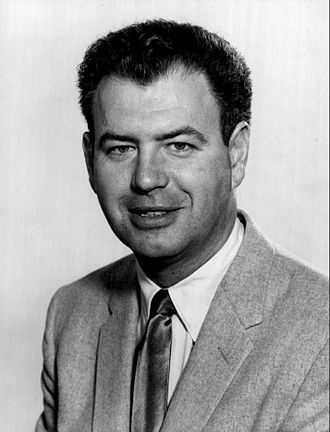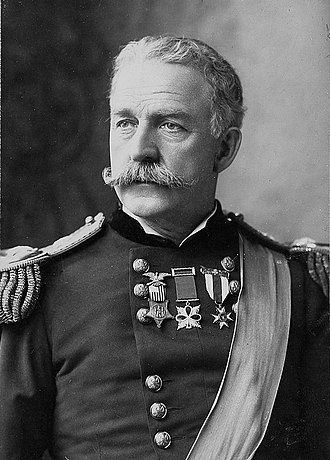Discover Your Roots
SIGN UPDiscover Your Roots
SIGN UPThe name Nelson is of English origin and is primarily used for males. It means "Son Of Neil Or Nell." It is derived from a patronymic name created from the given name "Nell." Nelson is also commonly used as a surname. The name has a rich history and has been associated with various notable individuals across different fields, including sports, politics, literature, and entertainment. It carries a sense of familial connection and heritage, reflecting the significance of lineage and identity. The name Nelson has been immortalized not only through real-life figures but also through fictional characters in popular culture, adding to its enduring appeal and recognition.

Nelson Smock Riddle Jr. (June 1, 1921 – October 6, 1985) was an influential American arranger, composer, and bandleader known for his extensive career from the late 1940s to the mid-1980s. He collaborated with numerous renowned vocalists at Capitol Records, including Frank Sinatra, Ella Fitzgerald, Nat King Cole, Judy Garland, and many others. Riddle's talent and creativity extended to scoring and arranging music for various films and television shows, earning him an Academy Award and three Grammy Awards. His successful partnership with Linda Ronstadt in the 1980s resulted in a trio of Platinum albums, further solidifying his impact in the music industry. Born in Oradell, New Jersey, Riddle developed a passion for music at a young age, finding inspiration in orchestral performances and eventually transitioning to composing and arranging. His dedication to music led him to work with notable bands and orchestras before establishing himself as a prominent figure in the music scene. Riddle's legacy continues to influence and inspire musicians and music enthusiasts worldwide.

Nelson Appleton Miles (1839–1925) was a distinguished United States Army officer who served in the American Civil War, the American Indian Wars, and the Spanish–American War. Born in Massachusetts, Miles began his military career during the Civil War, where he displayed exceptional bravery and leadership, earning multiple promotions and accolades, including the Medal of Honor. Following the war, he played a crucial role in the American Indian Wars, leading campaigns against various Native American tribes and earning the nickname "Bearcoat" for his distinctive bearskin fur coat. Notably, he was involved in defeating the Kiowa, Comanche, and Southern Cheyenne, as well as pursuing the Nez Perce tribal band led by Chief Joseph. Miles' contributions to the military and his significant role in shaping American history make him a revered figure in the nation's military legacy. His leadership, bravery, and strategic prowess have left an indelible mark on the history of the United States.

Nelson Ackerman Eddy (June 29, 1901 – March 6, 1967) was a multifaceted American actor and baritone singer known for his captivating performances in 19 musical films during the 1930s and 1940s. His illustrious career extended to opera, concert stages, radio, television, and nightclubs. A classically trained baritone, Eddy is most celebrated for his collaboration with soprano Jeanette MacDonald in eight films. He was revered as one of the early "crossover" stars, captivating both adoring bobby soxers and opera aficionados. Eddy's influence reached unparalleled heights, leading him to become the highest-paid singer globally during his prime. Throughout his remarkable 40-year career, Eddy accumulated numerous accolades, including three stars on the Hollywood Walk of Fame, imprints at Grauman's Chinese Theatre, three gold records, and an invitation to perform at the third inauguration of U.S. President Franklin D. Roosevelt in 1941. Eddy's impact on American culture extended beyond his performances, as he played a pivotal role in introducing classical music to the youth and inspiring many to pursue careers in music. An individual of musical lineage, Eddy's journey began in Providence, Rhode Island, where he developed his talents amidst financial struggles, overcoming hardships to forge a path to stardom. His relentless pursuit of musical excellence and unwavering dedication to his craft solidified his legacy as

Nelson Bunker Hunt (February 22, 1926 – October 21, 2014) was an American oil company executive and a billionaire whose fortune suffered a collapse following his and his brothers' attempt to corner the world market in silver, which was thwarted by government intervention. Hunt was also a prominent figure in thoroughbred horse breeding and a major sponsor of the John Birch Society.Hunt was born in El Dorado, Arkansas and spent most of his life in Dallas, Texas. He was the son of Lyda Bunker and oil tycoon H. L. Hunt, and had six siblings. He married Caroline Lewis Hunt and had four children. He passed away at the age of 88 due to cancer and dementia.In the business world, Hunt played a significant role in the discovery and development of oil fields in Libya and was involved in the exploration of oil in North Africa. The Hunt brothers' accumulation of silver in the 1970s led to a significant rise in silver prices, followed by a sharp collapse, leading to legal issues and bankruptcy filings.In addition to his business endeavors, Hunt was actively involved in conservative political causes and sponsored various organizations. He was also a prominent figure in thoroughbred horse racing, owning one of the world's largest and most productive breeding programs.Nelson Bunker Hunt's life was marked by significant achievements and controversies, making him a complex and noteworthy figure in the realms of business, politics, and horse racing.

Nelson Wilmarth Aldrich, born on November 6, 1841, was a prominent American politician and a key leader of the Republican Party in the United States Senate. Representing Rhode Island from 1881 to 1911, he was one of the influential "Big Four" Republicans who played a major role in Senate decisions. Aldrich's impact on national politics and his central position on the Senate Finance Committee led to him being dubbed the "general manager of the Nation". He worked on creating extensive tariffs to protect American industries and farms and was instrumental in the passage of the Payne–Aldrich Tariff Act and the 1898 Treaty of Paris, ending the Spanish–American War. Aldrich also led the passage of the Aldrich–Vreeland Act and sponsored the Sixteenth Amendment, which allowed for a direct federal income tax. His financial and trade policies were aligned with the efficiency model of the Progressive Era. Despite his contributions, reformers criticized him as a representative of big business. Notably, his daughter Abigail married John D. Rockefeller Jr. His descendants, including Nelson A. Rockefeller, became influential figures in American politics and banking. Aldrich's long political career began after serving in the Union Army during the American Civil War and working in the wholesale grocery business. He also had a significant impact on Rhode Island state politics before being elected to the United States Congress. His 30-year tenure in the Senate was marked by his focus on national tariff issues
All images displayed on this page are sourced from Wikipedia or Wikimedia Commons.We use these images under their respective Creative Commons or public domain licenses. Wherever applicable, author attributions and license information are provided. If you believe an image is used incorrectly or outside its license terms, please contact us so that we can review and correct the issue.